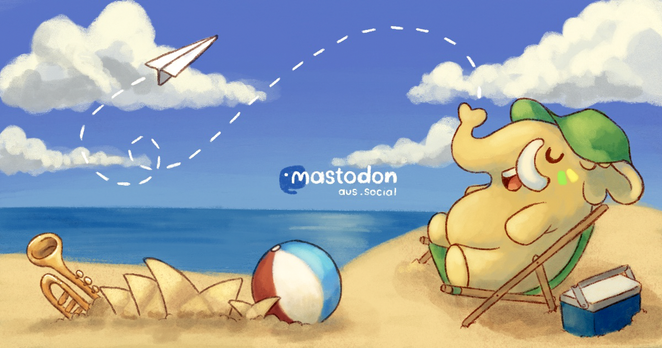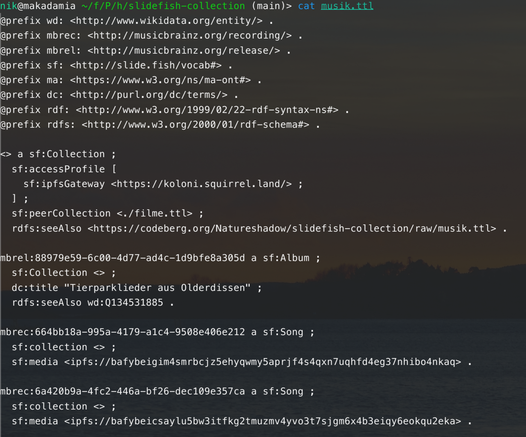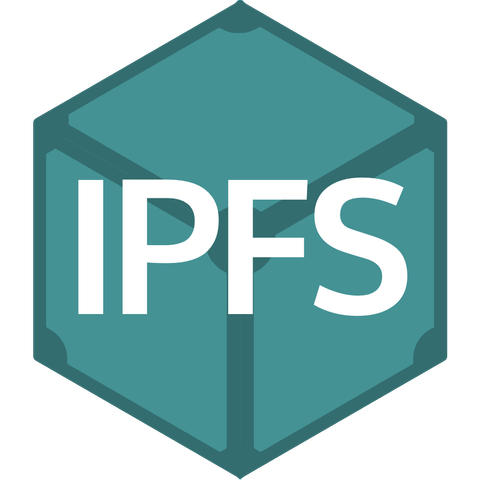OK j’ai passé une partie de la semaine dernière à lire de la documentation LaTeX, à me lancer dans une crise existentielle, à trouver un nouveau pseudo + éventuellement à accepter mon identité de personne non-binaire, à me mettre en retard de plus d’une semaine sur une fiche de lecture à rendre, à faire planter mon seul terminal Linux, à concevoir (dans ma tête) une infrastructure de blog pérenne™, à tenter d’installer Alpine Linux, MX Linux, NetBSD, et OpenBSD, sur un ordinateur défectueux acheté dans un destockage d’entreprise, et à accepter sur le principe les conséquences du fait que j’avais survécu à un #génocide dématérialisé et hybride, et que mon travail était une responsabilité collective.
Cet après-midi, j’ai donc pris mes responsabilités et contacté une camarade pour lui demander de l’aide sur mon téléphone, et éventuellement lui emprunter un ordinateur d’ici la réception de mon Framework 12.
Bref : mes billets seront directement publiés sur IPFS en tant que documents PDF, et référencés avec #Keyoxide en tant que preuves de type lien.
Cela signifie que si votre navigateur a le plugin #IPFS, il fetchera automatiquement mes billets au format PDF… et, en principe, qu’il les partagera tous.
Mes billets seront convertis du format LaTeX au format HTML avec NoWeb, et peut-être convertis au format GemText pour un export #Gemini avec un fork de Pandoc ou Skribilo (seuls les liens ayant une option [GemText=(...),] seront exportés). Ils seront accessibles à l’URL miroir.blog.tld sauf que je ne suis pas encore sûr·e de l’URL vu que je ne suis pas sûre de vouloir encore m’appeler Océane. Je demanderai conseil autour de moi, je garderai peut-être « Océane » comme pseudo (ou comme prénom) donc je renouvellerai le nom de domaine océane.fr, en tout cas pour l’année suivante.
Je pourrai éventuellement traiter océane.fr comme le miroir officiel de la liste de preuves Keyoxide vers laquelle redirigera un autre nom de domaine, mais je pourrai aussi utiliser un SLD dans la grande tradition du web 3 lol. (Je n’ai pas l’intention de m’investir dans les cryptomonnaies, mais ça peut parler à certaines personnes et faire les ponts entre libertarianisme et anarchisme – je veux partager des ressources au plus grand monde possible, et dire « Twitter est co-responsable d’un génocide » à des libertarien·nes me branche aussi – le FQDN de mon miroir n’a pas de raison particulière de changer le contenu de mes billets.)
Je compte partager mes modifications avec la communauté de rédaction de l’outil utilisé et mettre tout le reste en programmation lettrée avec #NoWeb. Mon éditeur de texte (Emacs) contiendra un script local (au répertoire de mon blog) de pré-remplissage des documents .tex basé sur un script Perl extrayant les éléments de configuration lettrée du document le plus récent dans l’arborescence git (par date de commit), et la syntaxe interprétée sera exportée dans un dossier /tmp/ci-blog/. De la sorte, à quelques exceptions triviales près, mon blog sera entièrement reproductible, en sus du code source de mes documents, accessibles dans mon projet git.
De la sorte, si un serveur OpenPGP devait être partagé sur IPFS, mon blog survivrait littéralement (en théorie et dans le cas de colonies extraterrestres) à une vitrification totale et irrémédiable de la planète Terre. La disparition ponctuelle de mon miroir ne serait même pas à proprement parler une perte car elle stimulerait l’apparition de pairs partageant mes documents IPFS.
J’ai réalisé ce travail grâce au défi #100DaysToOffload (lien), dans Emacs, en configurant et utilisant un système de références académiques pendant un an. cc #ToutEstMieuxAvecEmacs
PS : merci à mon mécène LiberaPay, je suis obligée de me bouger à cause de lui 😅 je n’en demandais pas tant donc je suis très touchée.
#Blog #Blogging #BloggingTools #BloggingSoftware #CIBlog #CIBlogging



